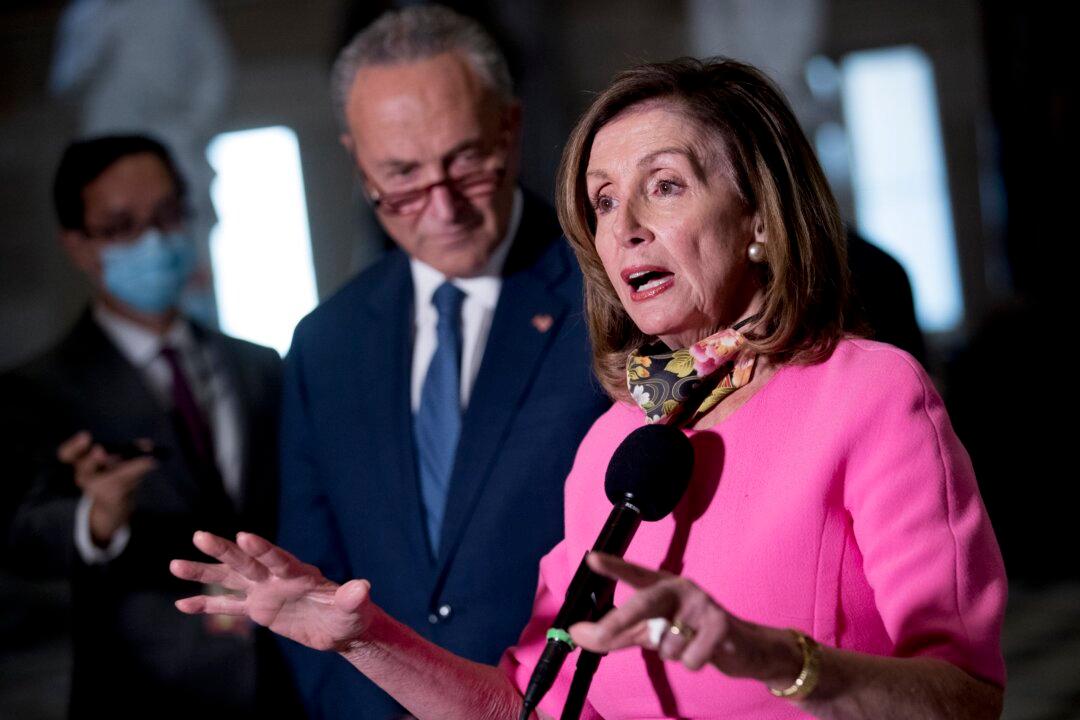House Speaker Nancy Pelosi (D-Calif.) “remains hopeful” that a stimulus deal can soon be struck with White House negotiators, according to her spokesperson, who cited some progress in talks over more CCP virus relief.
“The speaker remains hopeful that an agreement with the White House can be reached soon. As part of the negotiations, committee chairs have made some headway. Committees and staff will continue to work through the weekend,” spokesperson Drew Hammill said in a statement late Friday.





